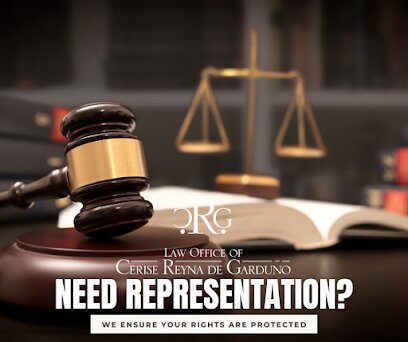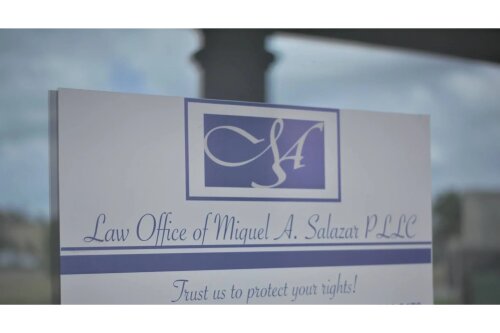Best Collaborative Law Lawyers in Indiana
Share your needs with us, get contacted by law firms.
Free. Takes 2 min.
Free Guide to Hiring a Family Lawyer
Or refine your search by selecting a city:
List of the best lawyers in Indiana, United States
About Collaborative Law in Indiana, United States
Collaborative law is an innovative legal process that helps parties resolve disputes, often in family law matters, without going to court. In Indiana, collaborative law is widely used in cases such as divorce, child custody, and property division. Instead of litigation, collaborative law encourages constructive negotiation with the help of specially trained attorneys, and sometimes financial advisors and mental health professionals. The goal is to achieve a fair, mutually satisfactory agreement while minimizing conflict and preserving relationships, particularly important when children are involved.
Why You May Need a Lawyer
People may seek legal assistance in collaborative law for a variety of reasons. Common scenarios include:
- Divorce or separation, especially when both parties want an amicable resolution
- Child custody and parenting time arrangements
- Division of assets, property, and debts
- Spousal support and child support negotiations
- Creating prenuptial or postnuptial agreements
- Modifying existing family law agreements or orders
- Desiring privacy, control, and reduced emotional strain compared to court litigation
- Maintaining ongoing relationships, especially when co-parenting
An attorney trained in collaborative law provides guidance on legal rights and obligations, ensures all agreements are legally sound, and fosters a cooperative environment, all while keeping your interests in mind.
Local Laws Overview
Indiana has incorporated collaborative law principles in its legal system, particularly within family law matters. Some key aspects you should understand:
- Both parties must voluntarily agree to use the collaborative process and sign a participation agreement outlining the ground rules.
- Each party has their own attorney who is specially trained in collaborative law methods.
- If the process fails, and either party chooses litigation, both collaborative attorneys are generally disqualified from further involvement in the case.
- All negotiations and communications during the collaborative law process are confidential and generally cannot be used in court later.
- Indiana courts are receptive to collaborative law agreements, provided they are fair, in the best interests of any children, and comply with applicable laws.
- Courts will review agreements reached in collaborative law to ensure legality and that no party is subject to unfair pressure or coercion.
Collaborative law in Indiana is designed to foster cooperation and avoid the adversarial nature of traditional court proceedings whenever possible.
Frequently Asked Questions
What is collaborative law and how does it differ from traditional litigation?
Collaborative law is a voluntary dispute resolution process where both parties, with the support of their attorneys, negotiate to reach agreements outside of court. Unlike traditional litigation, collaborative law is cooperative, confidential, and generally less adversarial.
Who can participate in collaborative law in Indiana?
Any individuals involved in a dispute, especially related to family law, who are willing to work toward a mutually acceptable solution and sign a collaborative law participation agreement.
Do I still need an attorney if I choose collaborative law?
Yes, each party has their own collaboratively trained attorney to provide legal guidance, help with negotiations, and ensure the process is fair and lawful.
What issues can be resolved through collaborative law?
Collaborative law is often used for divorce, child custody, child and spousal support, property division, prenuptial and postnuptial agreements, and modifying existing court orders.
Is collaborative law less expensive than going to court?
Generally, yes. Since collaborative law avoids lengthy court battles and can resolve issues more efficiently, it often reduces legal fees and emotional costs.
What happens if we cannot reach an agreement during the collaborative process?
If negotiations fail, the collaborative process ends, and both parties must hire new attorneys if they choose to proceed to litigation or court.
How are agreements finalized in collaborative law?
Once an agreement is reached, your attorneys draft legally binding documents that are submitted to the court for approval, making the agreement enforceable.
Are collaborative law proceedings confidential?
Yes, discussions and documents shared during the collaborative process are confidential and generally cannot be used as evidence if the case goes to court.
Is collaborative law suitable if there is a significant power imbalance or history of abuse?
Collaborative law may not be appropriate when there is a history of abuse, intimidation, or significant power imbalances. Discuss these issues with your attorney to determine the best approach for your situation.
How do I find a collaborative law attorney in Indiana?
Seek attorneys certified or specially trained in collaborative law. Many local bar associations and collaborative law practice groups offer directories and referrals.
Additional Resources
If you are considering collaborative law in Indiana, the following resources can help:
- Indiana State Bar Association - Family and Collaborative Law Sections
- Indiana Collaborative Professionals Network
- Local court self-service legal centers
- Indiana Legal Services for low-income individuals
- American Bar Association - Section of Dispute Resolution
- Family law clinics at Indiana law schools
These organizations provide information about collaborative law, referrals to trained attorneys, and guidance throughout the process.
Next Steps
If you believe collaborative law may be the right path for your legal issue, here is how to get started:
- Research collaborative law attorneys in your area with experience in cases similar to yours
- Schedule a consultation to discuss your situation and determine if collaborative law is appropriate
- Ask about the attorney’s training and experience in collaborative law
- Discuss the process, costs, and expected timeline with your attorney
- If both parties agree, sign a participation agreement to formally begin the process
- Collaborate with your attorney to gather information and prepare for negotiations
- Engage in open, honest communication with all parties involved to work toward a resolution
Collaborative law offers a private, respectful, and flexible alternative to court proceedings. The right legal assistance can guide you through the process and help achieve a result that works for everyone involved.
Lawzana helps you find the best lawyers and law firms in Indiana through a curated and pre-screened list of qualified legal professionals. Our platform offers rankings and detailed profiles of attorneys and law firms, allowing you to compare based on practice areas, including Collaborative Law, experience, and client feedback.
Each profile includes a description of the firm's areas of practice, client reviews, team members and partners, year of establishment, spoken languages, office locations, contact information, social media presence, and any published articles or resources. Most firms on our platform speak English and are experienced in both local and international legal matters.
Get a quote from top-rated law firms in Indiana, United States — quickly, securely, and without unnecessary hassle.
Disclaimer:
The information provided on this page is for general informational purposes only and does not constitute legal advice. While we strive to ensure the accuracy and relevance of the content, legal information may change over time, and interpretations of the law can vary. You should always consult with a qualified legal professional for advice specific to your situation.
We disclaim all liability for actions taken or not taken based on the content of this page. If you believe any information is incorrect or outdated, please contact us, and we will review and update it where appropriate.
Browse collaborative law law firms by city in Indiana
Refine your search by selecting a city.













